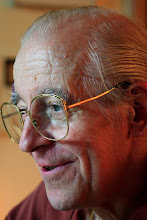Over the centuries, as Buddhism spread across Asia, certain mythological powers were attributed to sari. The 16th century medical encyclopaedia Bencao Gangmu (本草綱目) written by Li Shizhen (李時珍, 1518-1593) in the Ming Dynasty (明朝, 1368–1644) explained that sari can only be broken apart using the horns of antelopes. The Korean scholar Yi Kyu-gyong (李圭景, 이규경, 1788-1856) also said that because sari is created as a result of extreme yin (陰) energy, or the Chinese principle of feminine passivity, sari will melt when touched by rhino horns, the material of masculine active yang (陽) energy. Of course, some have tried to exploit the purported power of sari over the years.
A wicked monk named Hyoga appears in the history book of the Korean Koryo Dynasty (高麗國,고려국, 918-1392). He tricked people into believing that honey water mixed with rice flour was actually sari that came from his body during enlightenment. He was sentenced to a severe punishment for his trespasses in 1313. In addition, Yi Ik (李瀷, 이익, 1681-1763), a prominent Korean scholar in the 18th century, criticised monks for pretending to discover sari in the remains of the dead. He said that sari were rarely found in the past, but now it is very common for monks to find them and then build towers around sari to encourage pilgrimages to their temples. Yi Ik even said that some monks brought lawsuits against each other so they could find out whether sari in the towers were genuine or forgeries.
Scientists today claim that sari is merely a result of the body’s disintegration during the cremation process, not anything related to Buddhist enlightenment. A study published in a 1995 edition of a journal of legal medicine found that crystal-like substances can be formed when burning a human thighbone at a temperature of more than 1400 degrees Celsius. Of course, the faith of Buddhists in the words of the Buddha has meant that sari still plays an important role among the faithful. Millions of pilgrims travel across Asia to see the sari towers and shrines each year.

The late Venerable Popchong (1932-2010) entered into nirvana March 11 and his body was cremated March 13. Even in his death, he gave his last lesson on how to live a life without possessions. He asked for a very simple cremation and the ceremony was indeed a simple one: The late monk's body was laid on his bamboo bed, covered with an unadorned sheet and placed on a funeral pyre. The monk’s dying wish is not to be forgotten: “Do not try to find crystals nor build a tower.”
Popchong was one of the great spiritual leaders of our time, a figure who commanded great respect from Buddhists and non-Buddhists alike. He lived the life he preached. His life was a meditation on not possessing anything. He taught that possessing something means being bound by that possession. He cautioned against obsession and taught people to let go. He retreated to a tiny mountainside hut in Kwangwon Province (江原道, 강원도). He never headed a temple. He never stayed overnight in Kilsang Temple in Seoul, which he founded. He always headed back to his mountainside abode after his rare public engagements.
Like many great spiritual leaders of our time, Popchong was actively engaged in society. He played an active role in bringing about democracy in Korea. He also headed a group promoting life, charity and environmental conservation. He worked to promote communication across religions. Koreans now have more material wealth than ever. Yet, are they happier as a result of having more material possessions? In his death, Popchong again poses that question to all of us. He asked that all books he wrote be not published anymore. In leaving this world, he did not want to leave behind anything, not even his name or memory of him.
Yet, it is hoped that people will continue to remember and be inspired by Popchong, his exemplary life and his teachings. His words scold us for being focused on material treasures like sari that distract us from our spiritual obligations to our faith.
Seoul, Korea
Photo by Chong Myo-hwa
March 28, 2010

Nessun commento:
Posta un commento